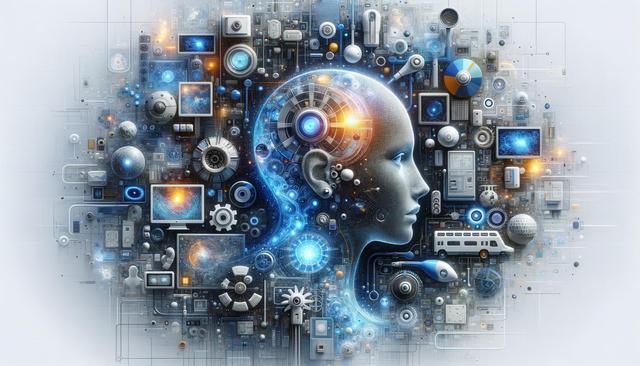What Is an Intelligent Agent in AI?
In the field of Artificial Intelligence (AI), the concept of an intelligent agent is fundamental to understanding how systems perceive, decide, and act. An intelligent agent can be defined as an autonomous entity that observes its environment through sensors and acts upon that environment through actuators to achieve specific goals. A common example of intelligent agent includes a self-driving vehicle that uses cameras and sensors to navigate urban streets while making decisions based on real-time data.
These agents can vary in complexity, from simple reflex agents to more advanced goal-based or utility-based agents. Each of these categories is designed to function optimally in different environments and levels of decision-making. Recognizing the role of intelligent agents helps in understanding how AI systems are structured and how they operate in practical scenarios.
Examples of AI agents are present in various everyday technologies. For instance, personal digital assistants, spam filters, and recommendation systems all operate using the principles of intelligent agents. These systems gather data, evaluate it, and then perform tasks based on pre-defined or learned rules. The increasing reliance on such systems highlights the growing impact of artificial agency in modern life.
Different Types of Agents in AI
There are several types of agent in AI, each tailored to specific tasks and operational environments. These agents are categorized based on their capabilities and the complexity of their decision-making processes. Understanding the distinctions between them provides deeper insights into how AI systems are designed.
Here are the most common types of agent in AI:
- Simple Reflex Agents: Act based on the current percept, ignoring the rest of the percept history.
- Model-Based Reflex Agents: Maintain an internal state to track aspects of the world that are not immediately perceptible.
- Goal-Based Agents: Make decisions by considering future consequences and choosing actions that help achieve specific goals.
- Utility-Based Agents: Evaluate different options based on a utility function to select the most beneficial outcome.
- Learning Agents: Improve their performance over time by learning from interactions with their environment.
Each of these agents plays a crucial role in various AI applications, from robotics to customer service systems. The diversity of agent types reflects the broad range of challenges that AI can address.
Software Agents and Their Role in AI
A software agent in AI refers to a program that performs tasks autonomously on behalf of a user or another program. These agents are increasingly used in digital environments to handle repetitive or complex tasks, often with a degree of intelligence that allows them to make decisions and adapt to changing conditions.
Software agents can operate in various fields, including:
- Finance: Automated trading systems that analyze market trends and execute trades.
- Customer Support: Chatbots that interpret user queries and provide relevant assistance.
- Healthcare: Systems that monitor patient data and alert medical personnel to potential issues.
- Cybersecurity: Agents that detect and respond to threats in real-time.
These agents often rely on machine learning and natural language processing techniques to interpret data and perform their tasks effectively. The adaptability of software agents makes them suitable for dynamic environments where ongoing analysis and decision-making are required. Their presence across multiple sectors illustrates the growing reliance on artificial agency in digital infrastructures.
Real-World Examples of AI Agents
AI agents are no longer confined to research labs—they are actively shaping real-world applications across various industries. Recognizing examples of AI agents in daily life helps demystify how Artificial Intelligence integrates with and enhances our routines.
Some practical examples of AI agents include:
- Smart Home Devices: Thermostats that learn user preferences and adjust temperatures automatically.
- Navigation Systems: GPS apps that suggest the fastest route based on traffic conditions.
- Voice Assistants: Devices that process voice commands to perform tasks like setting reminders or playing music.
- Email Filters: Systems that identify and sort spam or promotional emails automatically.
- E-commerce Recommenders: Suggest products based on user browsing and purchase history.
These examples of AI agents demonstrate how intelligent systems can simplify tasks, improve efficiency, and enhance user experiences. As technology evolves, the sophistication and autonomy of these agents are likely to increase, further embedding AI into our daily lives.
The Concept of Artificial Agency
Artificial agency refers to the capacity of AI systems to make decisions and take actions independently, often in ways that mimic or complement human decision-making. This concept is central to the development of autonomous systems, where machines are required to operate without constant human oversight.
Artificial agency is enabled by advances in several fields, including:
- Machine Learning: Allows systems to learn from data and improve over time.
- Computer Vision: Enables machines to interpret visual information.
- Natural Language Processing: Helps systems understand and respond to human language.
- Robotics: Combines sensors and actuators to perform physical tasks in real-world settings.
With artificial agency, AI systems can be deployed in environments that require real-time decision-making, such as autonomous vehicles, industrial automation, and smart cities. The development of reliable artificial agency is essential for expanding the role of AI in society while ensuring safety, accountability, and alignment with human values.
Conclusion: Embracing the Future of AI
Artificial Intelligence is rapidly transforming how we approach problem-solving, decision-making, and task automation. Through a better understanding of intelligent agents, the different types of agent in AI, and the role of software agents, we can appreciate the depth and breadth of this evolving technology. Real-world examples of AI agents and the growing capabilities of artificial agency highlight the practical and increasingly essential role AI plays in modern life.
For those interested in technology, computer science, or future innovation, exploring the world of AI agents offers valuable insights into the mechanisms behind many of today’s intelligent systems. As the field continues to grow, staying informed about these foundational concepts will be key to navigating and leveraging the potential of AI effectively.




Leave a Reply